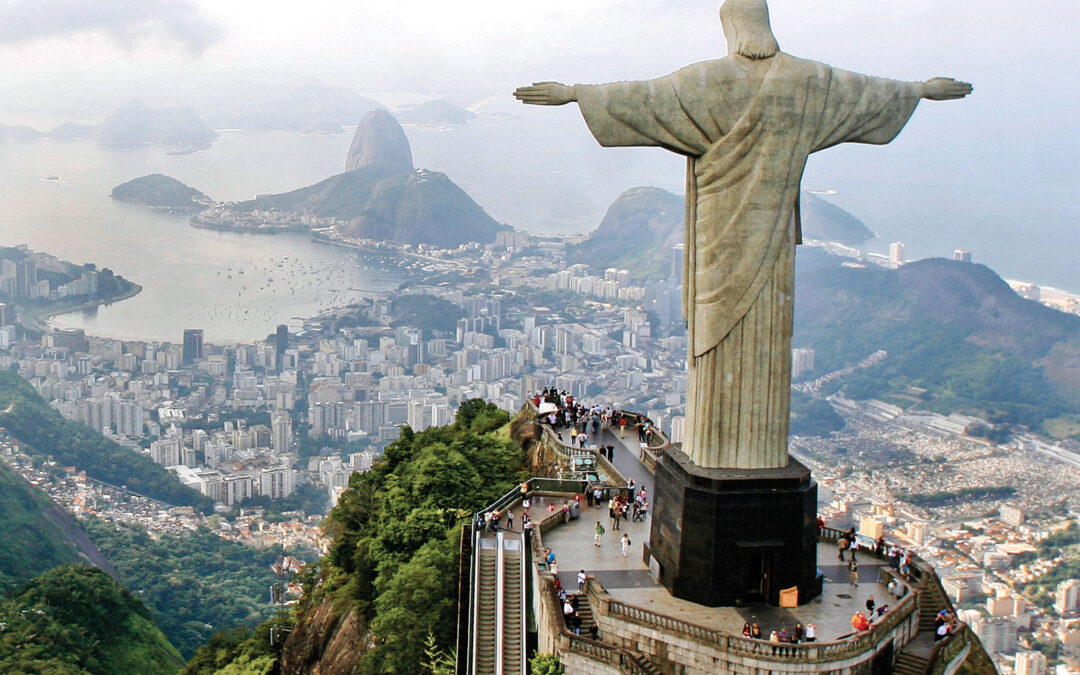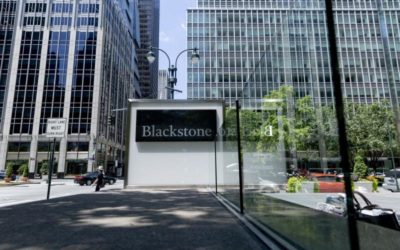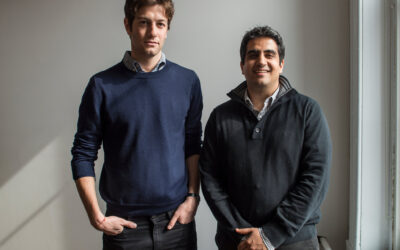Neon Pagamentos, Brazil’s answer to Revolut, cashed in on all the pandemic pandemonium to attract a $300m funding round last week.
Led by US private equity giant General Atlantic, the sum is the largest the São Paulo fintech start-up bank has received since its inception in 2016. Launched with a simple digital account, Neon has seen a 26% spike in new users since March, when the coronavirus crisis first hit.
“We are growing faster than prior to the pandemic,” Pedro Conrade, Neon’s founder, told Private Equity News. “Since February, the volume of transactions, the amount of money invested, and the average balance per client have doubled at Neon.”
“Besides the fact that Covid has hit Brazil hard, this is the perfect moment for companies that offer better, cheaper and more convenient solutions to their clients.”
But Neon is an anomaly in Brazil, a country that is one of the biggest losers of the coronavirus crisis globally. Brazil has suffered the world’s second-worst Covid outbreak after the United States, with more than four million confirmed cases and over 120,000 deaths.
Droves of investors are fleeing Latin America’s biggest economy, thanks to a triple whammy of a deep recession, the coronavirus crisis and political upheaval ravaging the country.
Private equity deal activity in Brazil has plummeted by 65% so far this year, according to Dealogic. Only seven transactions were concluded, against 20 investments recorded as of the end of August in 2019, the research company reports.
General Atlantic, one of the world’s biggest private equity firms and Neon investor, told PEN that the pandemic will “reshape” investment decisions around the world.
“The Covid pandemic and related global economic shock is creating long-term, durable changes to business, consumers, society, and government,” said Luiz Ribeiro, principal at General Atlantic and the firm’s representative on the Neon board of directors.
“We expect these changes will reshape the investment landscape and create important new opportunities, as well as significant headwinds for many businesses,” he added.
The bruised Brazilian real is also one of the worst-performing currencies in the world this year, adding to investors’ nervousness about investments in the Latin American market.
“The long-term impact of Covid, especially in Brazil as one of the hardest-hit nations globally, is still yet to be fully understood, and that is also something for investors to bear in mind,” said Sweta Chattopadhyay, a director on the private markets team for financial advisory firm bfinance.
“Investments must be made with caution. Currency volatility is clearly a risk to returns, as well as a higher level of social and political instability.”
Widespread slowdown
Brazil is not alone to suffer a blow – investment in many other developing economies has fallen off a cliff due to the Covid-19 outbreak.
Total dealmaking in emerging markets has nearly halved this year. The global private equity industry concluded 197 transactions worth $22.5bn over 377 deals valued at $38bn in the first six months of 2019 in these geographies, PitchBook said.
Central and Eastern European countries were the worst performers in the first half this year with a 65% drop in the number of deals.
They were followed by emerging Asia, which recorded a 55% decline in transactions, Latin America, with 46% less investments, and African and Middle Eastern nations with – 44% and -25%, respectively.
“Emerging markets have always been diversified to the core PE portfolio, although returns haven’t necessarily always matched up to the more mature markets of US and Europe, especially the distributions from some of the nascent markets,” Chattopadhyay added.
The current investment slowdown is in stark contrast with market sentiment last year. Private equity giants, such as Carlyle, were bullish about piling money into emerging markets. At a keynote speech in a conference, the firm’s co-chairman David Rubenstein said that emerging markets would be where he would invest much of his own money looking towards the future.
But like every other investor in the world, he did not see a pandemic coming.
Due to the virus crisis, poor and middle-income countries are now facing unprecedented economic challenges, in many cases driven by their dependency on commodities. From crude oil to agricultural products and tourism – demand has all but vanished overnight.
These vulnerabilities coupled with nations’ limited ability to deploy fiscal or monetary interventions paints a grim picture ahead.
Africa’s loss, Europe’s gain
According to estimates by the International Finance Corporation (IFC), domestic private investment and foreign direct investment in emerging economies will fall this year by almost $700bn and $250bn, respectively, and may not return to pre-crisis levels until 2023.
“We see a particular gap in the level of response between developed and emerging markets. As we saw during and following the global financial crisis, we expect this will ultimately be reflected in the time it takes for individual countries to work through their distressed assets,” Giuseppe Naglieri, partner at investment adviser Varde Partners, said.
Not many seem to be excited about investment opportunities in emerging markets. A survey conducted by research firm Cerulli Associates with 100 institutional asset owners revealed that 92% of European investors would prefer to keep their private equity investments in Europe.
Their second option to allocate capital is in North America, with 47% of votes, followed by Asia with 13%, and Africa with only 3% of respondents’ intentions to put money to work.
Justina Deveikyte, a researcher at Cerulli Associates, said: “Although there may be more attractive opportunities, fund managers will need to be more selective and spend more time performing due diligence.”
Limited partners have also shunned developing economies, with overall investor commitments to emerging market private funds expected to decline, according to a survey by Emerging Market Private Equity Association (Empea).
The lobbying group found that fewer global LPs are willing to make new commitments to emerging market-focused private capital funds over the next two years. The share of 2020 survey respondents planning to increase their private capital fund commitments in the near term has declined to 30% from 52% in Empea’s 2019 survey.
Post-pandemic crystal ball
Despite the doom and gloom, investors are closely watching emerging markets in case of a potential rebound in a post-pandemic world.
General Atlantic, which also invested in the £1bn British clothing start-up Gymshark last month, thinks fintech and digital financial services are the rare bright spots amid the pandemic.
Ribeiro said: “The ongoing dislocation caused by Covid has spurred a wave of innovation, where new business models are being introduced across financial services to provide traditional services in a more cost-effective, user-friendly way. The demand for financial services continues to rise as the economies develop and become more complex.”
The GA exec also pointed out that international expansion opportunities are the other key factor to consider when planning investments in emerging markets.
“While Covid has led some businesses to scale back their global expansion plans and networks, other companies that can provide innovative solutions that match the needs of multiple markets have the opportunity to realise significant growth,” Ribeiro added.
Brazil’s economy will recover at a faster pace in 2021 than Latin American peers such as Mexico, according to Alejo Czerwonko, chief investment officer of emerging markets Americas at UBS Global Wealth Management.
“This year made it very clear that investors should build portfolios positioned for a range of potential future scenarios.
“Emerging market assets empower them to do so, as they promote geographic diversification and contribute to higher returns than a portfolio without them. Indeed, we expect emerging market equities to outperform other equity markets in the years ahead, and emerging market fixed income to continue to deliver solid risk-adjusted returns,” he added.
Other market insiders predict that the so-called “digital drive” spurred by the pandemic will be key in kickstarting growth in digital economies.
Gautham Deshpande, a private equity expert at global advisory firm EisnerAmper, said: “Because of Covid, the digital transformation has accelerated. The pace of change that the emerging economies are going to experience is going to be very different – they will definitely skip at least one or two steps than the developed markets had to go through in their evolution.”
Deshpande also noted that countries like India or Brazil do not have enough capital to invest in infrastructure to make that digital transformation happen. This urgent demand, he adds, will open new and large avenues of opportunity for private capital.
“These investors understand that when that opportunity comes, it does with a risk. But also with returns that are likely to beat investors’ expectations,” he told PEN.
Source: Private Equity News
Can’t stop reading? Read more
US Pipeline Operator ONEOK Inks Two Deals for $5.9 Billion
US pipeline operator ONEOK Inc. agreed to buy a Permian Basin rival and a controlling stake in...
Blackstone Is Said to Seek A$5.5 Billion Loan for AirTrunk Bid
Private equity firm Blackstone Inc. is in discussions with banks for a five-year loan of about...
Thrive Capital to lead multi-billion dollar OpenAI investment round at $100bn valuation
OpenAI, the company behind the popular AI tool ChatGPT, is in advanced talks to secure several...




